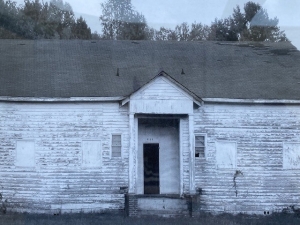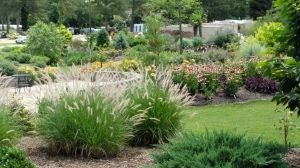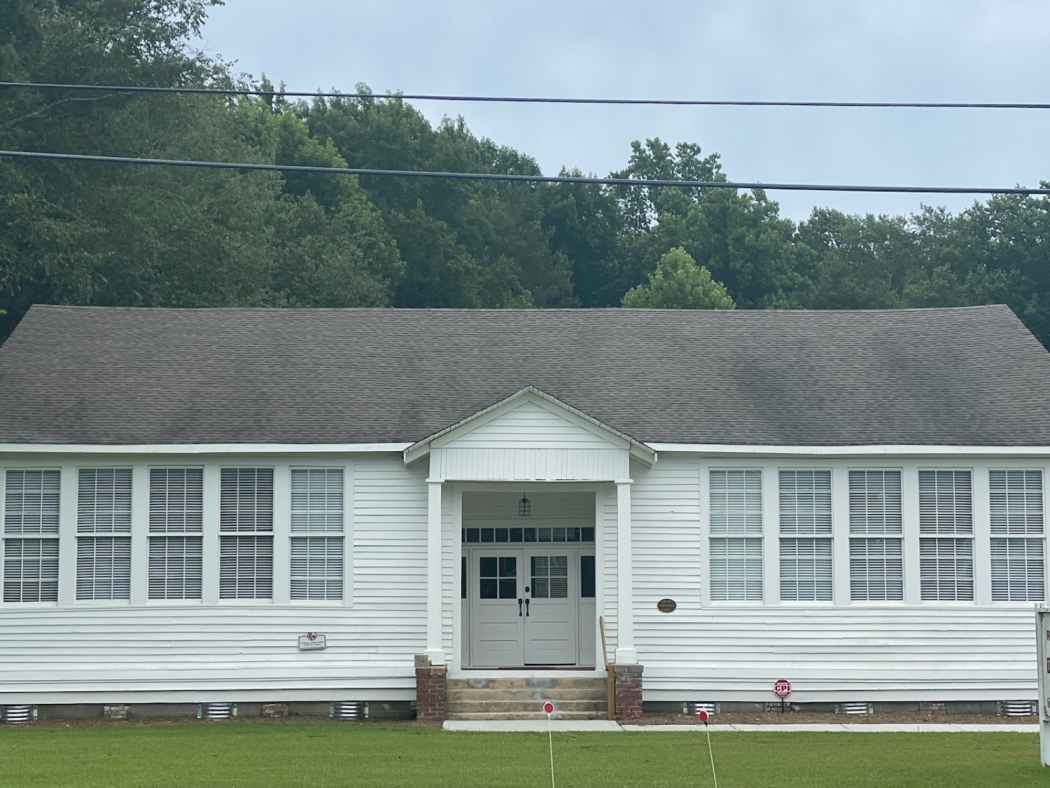Located off of Sauls Road in southern Wake County, Panther Branch Rosenwald School — a Wake County Historic Landmark — is one of over 5,000 schools built in the South by the Rosenwald School Project, one of the most significant initiatives to improve the education of African Americans in US history.
A collaboration between Sears & Roebuck president Julius Rosenwald and Booker T. Washington of the Tuskegee Institute, the Rosenwald Project funded the construction of 5,350 state-of-the-art schools (and associated structures) for African American students around the country between 1913 and 1932. By 1928, one in five African American schools was affiliated with the Rosenwald Project.
 Panther Branch School was originally built in 1926. Recently restored by Juniper Level Missionary Baptist Church, it is now one of only 60 remaining Rosenwald Schools in existence.
Panther Branch School was originally built in 1926. Recently restored by Juniper Level Missionary Baptist Church, it is now one of only 60 remaining Rosenwald Schools in existence.
Less than a quarter-mile from the school sits Juniper Level Botanic Garden, a 28-acre educational, research and display garden established in 1988 by Tony Avent and his late wife, Michelle. Recently gifted to North Carolina State University, the garden has amassed one of the top five plant collections in the country.
To honor this important piece of African American history, Juniper Level Botanic Garden has partnered with Juniper Level Missionary Baptist Church to enhance the landscaping of the newly restored landmark.
“The partnership with Juniper Level Botanical was critical in completing the restoration of the Rosenwald School,” said Jeffrey B. Robinson, pastor of Juniper Level Missionary Baptist Church. “They conducted research and discovered what type of plants and hedges were originally used at the Rosenwald schools. The partnership has given us guidance, but mostly friendship.”

Juniper Level Botanic Garden
Due to their proximity, both Panther Branch Rosenwald School and Juniper Level Botanic Garden will open to the public for free self-guided tours on Feb. 25-27 and March 4-6. The hours are Fridays and Saturdays from 8 a.m. until 5 p.m. and Sundays from 1-5 p.m.
“We hope that the tours will allow people to go back into history and see how the community came together as one,” said Robinson.
For more information about future tours, visit the Juniper Level Botanic Garden’s website.





